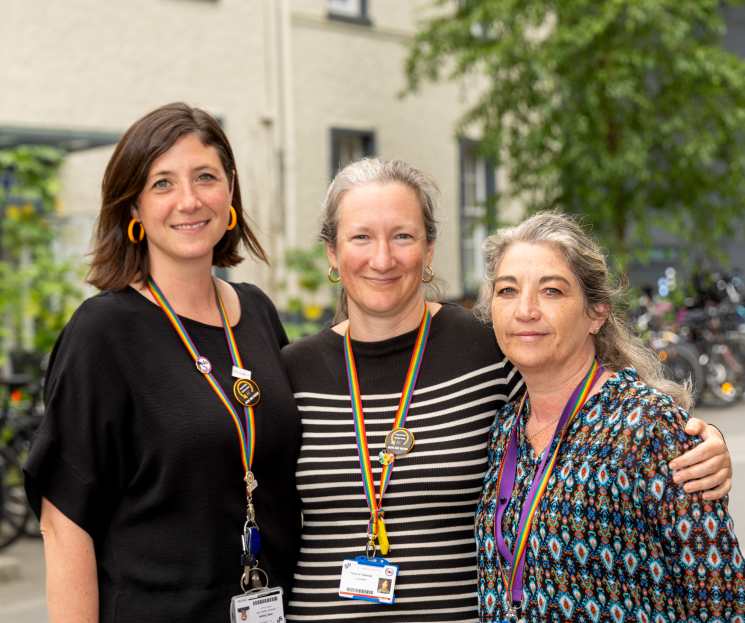1 September, 2023
Pictured: Members of the St James’s hospital Inclusion Health and Emergency Department teams
Credit: Anthony Edwards, Clinical Photographer St James's Hospital
August 31 marks International Overdose Awareness Day and this year’s theme “Recognising those people who go unseen”, is about acknowledging people in our communities who are affected by overdose, but might go unseen in the crisis.
To mark the occasion, the Inclusion Health Service and Emergency Department (ED) at St James’s Hospital, in collaboration with the HSE National Social Inclusion Office, are now administering take-home naloxone (THN) from the hospital’s ED. These free kits will be available to patients who attend the St James’s Hospital ED and have experienced an opioid overdose or are at risk of overdose.
Naloxone is a medicine that rapidly reverses an opioid overdose by attaching to opioid receptors, reversing and blocking the effects of other opioids. Naloxone has previously been accessible in Ireland through harm reduction and needle exchange services, drug treatment centres and for staff in emergency homeless accommodation services to intervene in the event of a suspected opioid overdose. While community services are actively and assertively engaging with people who use drugs and their families about naloxone and how to use it, little is known about its availability or how to access it within the hospital.
Jess Sears, Inclusion Health Clinical Nurse Specialist at St James’s Hospital added:
“This pilot has the potential to improve the relationship between hospital staff and the patients we treat, which in turn may result in them returning for follow-up care and improving their overall health outcomes. I am privileged and excited that St James’s Hospital is the first hospital in Ireland promoting Take Home Naloxone. I hope we can follow Scotland in making Take Home Naloxone available through the ambulance services, providing the intervention to people who decline a transfer to hospital, and widening the reach to the Gardaí and other emergency services.
“We wouldn’t hesitate to provide an EpiPen to someone with a severe allergy or a glucagon injection to a diabetic person at risk of severe hypoglycaemia. We should follow the same approach for opioid users by training their family and friends on how to identify an emergency and respond with naloxone, a potentially lifesaving treatment.”
Further information about naloxone can be found on the HSE website here.
